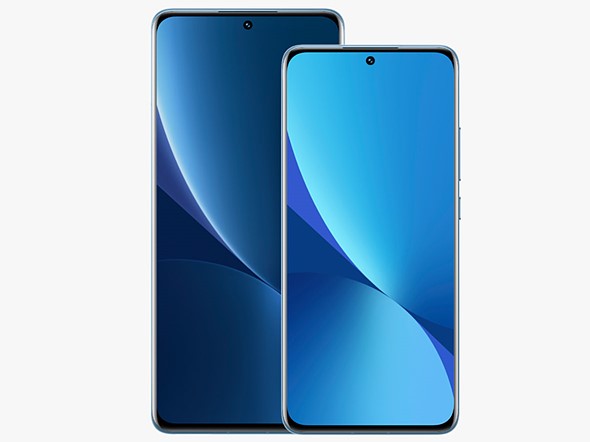 |
Xiaomi has unveiled its latest flagship smartphones, the Xiaomi 12 and Xiaomi 12 Pro. While the smartphones are currently exclusive to China, limiting their appeal to a worldwide audience, the phones are worth discussing because the features are quite interesting and may hint at what customers in the US and Europe can expect from future international Xiaomi models.
The Xiaomi 12 series phones are powered by the latest Snapdragon 8 chips, feature impressive OLED panels, some interesting camera specs, and features, and very fast 120W charging (at least for the 12 Pro model).
 |
The Snapdragon 8 Gen 1 mobile platform promises a 30 percent increase in terms of graphics performance and a 25% increase in energy efficiency. The smartphones incorporate Xiaomi’s seventh-generation AI engine, which is five times better than the previous iteration. Both smartphone models include LPDDR5 RAM and faster storage. With the increased performance, there are greater cooling demands. Each model includes large heat-dissipation plates, with the 12 Pro incorporating a more aggressive cooling design.
Considering photo capabilities, the Xiaomi 12 series smartphones feature an all-new imaging computing algorithm. Xiaomi writes, ‘Over two years, Xiaomi revamped its image processing and architecture, and its heterogeneous parallel computing greatly shortens continuous shooting interval and improves experience when shooting in burst mode.’ Shutter lag has also been reduced.
In terms of hardware, the Xiaomi 12 features a Sony IMX766 image sensor for its main camera. The sensor is 1/1.56-inch type. The phone also includes a 13MP ultra-wide camera and a 5MP telephoto camera with macro focusing capabilities.
 |
The Xiaomi 12 Pro instead features a ‘state-of-the-art’ triple camera array, with each camera offering 50MP resolution. The main camera debuts the Sony IMX707 sensor, which is 1/1.28-inch type. The new camera system’s light-gathering is improved 49 percent compared to the previous generation. Combined with Xiaomi’s Night Mode algorithm, low-light performance should be significantly improved. The ultra-wide camera features a 115-degree field of view, and the 2x telephoto camera is designed to deliver high-quality portraits.
The Xiaomi 12 and 12 Pro each earned an ‘A+’ grade from DisplayMate. The smaller Xiaomi 12 features a 6.28-inch flexible OLED screen with 2400 x 1080 resolution, 1100-nit peak brightness and a 120Hz refresh rate. The 12 Pro has a larger 6.73-inch display with 3200 x 1440 resolution. Its peak brightness can go to 1500 nits when viewing HDR content. It also has a 120Hz refresh rate. Both models support HDR10+ and Dolby Vision. Audio matters, too. The devices support Dolby Atmos and feature hardware tuned by Harman Kardon.
 |
The Xiaomi 12 Pro includes the industry’s first 120W single-cell 4,600mAh battery design. As CNET observes, 120W charging is quite interesting. They offer a comparison with Apple’s latest MacBook Pro models. The 14-inch notebooks come with 67W or 96W chargers, and the 16-inch laptop ships with up to a 140W charger. To have a smartphone in this territory is notable. The iPhone 13 Pro uses a 20W USB-C Power Adapter, for example. The OnePlus 9 Pro smartphone has 65W charging, which can power the device from nearly dead to fully charged in under half an hour. One of the tradeoffs of faster charging, however, is shortened battery longevity, which is even more important now as most newer smartphones don’t have user-removable batteries that can be swapped out with ease.
The Xiaomi 12 and 12 Pro will come in 128GB and 256GB models with 8GB or 12GB of RAM. The devices will be available in black, blue or purple glass colorways or with green vegan leather backing. Prices range from RMB 3,699 to RMB 5,399, which equates to around $580 to $850. As mentioned earlier, the devices are only available in China at this time. You can probably find sellers shipping them overseas, however, if you’re determined to get your hands on one.
